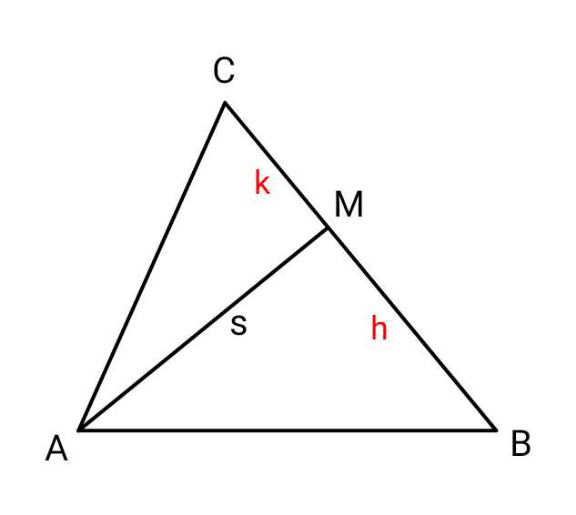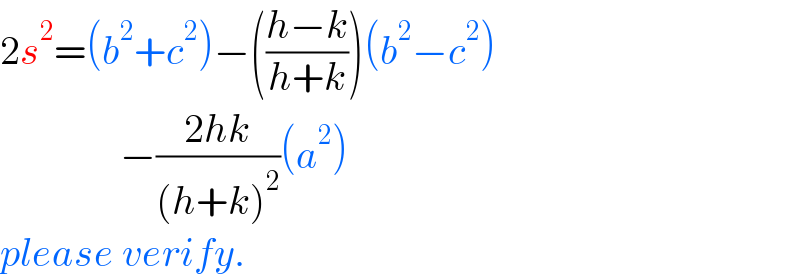
Question Number 203803 by ajfour last updated on 28/Jan/24

Answered by ajfour last updated on 28/Jan/24

$$\mathrm{2}{s}^{\mathrm{2}} =\left({b}^{\mathrm{2}} +{c}^{\mathrm{2}} \right)−\left(\frac{{h}−{k}}{{h}+{k}}\right)\left({b}^{\mathrm{2}} −{c}^{\mathrm{2}} \right) \\ $$$$\:\:\:\:\:\:\:\:\:\:\:\:\:\:\:−\frac{\mathrm{2}{hk}}{\left({h}+{k}\right)^{\mathrm{2}} }\left({a}^{\mathrm{2}} \right) \\ $$$${please}\:{verify}. \\ $$
Commented by mr W last updated on 28/Jan/24

$${s}^{\mathrm{2}} =\frac{{hb}^{\mathrm{2}} +{kc}^{\mathrm{2}} }{{a}}−{hk} \\ $$
Commented by ajfour last updated on 28/Jan/24
yes true, just that i havnt taken h+k=a in my post h and k are ratio terms. Thanks Sir.
Commented by mr W last updated on 29/Jan/24

$${apply}\:{this}\:{for}\:{Q}\mathrm{203794}? \\ $$
